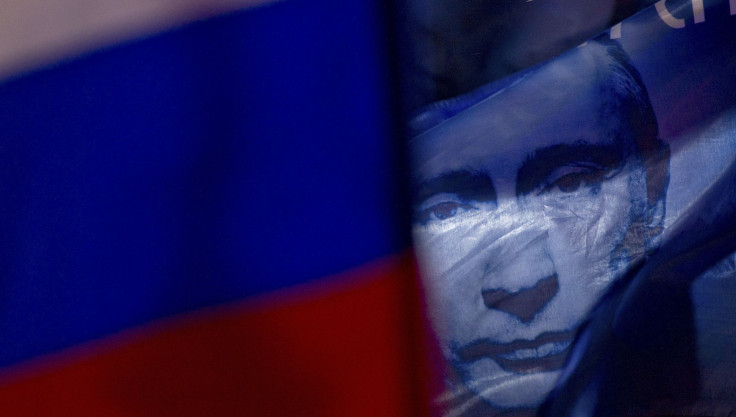Russian Internet Censorship, Social Media Crackdown Make It Easy For Putin To Stay Popular

Western media observers have been alarmed by the series of Russian laws passed that give the Kremlin an increased ability to police the Internet. For liberal Russians, and bloggers in particular, the newest limitations are just the latest part of a disturbing trend of new restrictions on Internet media that, not coincidentally, began when Vladimir Putin retook the presidency in 2012.
Putin has chipped away at Internet freedom in Russia since he returned to the Kremlin in 2012, blaming social media platforms for helping organize massive Moscow street protests that attracted thousands of people chanting “Russia without Putin.” Since then he’s casually referred to the Internet as a Central Intelligence Agency plot against Russia, offered a $110,000 bounty for anyone able to crack the Tor anonymity network, and last week enacted a law that forces all bloggers with 3,000 or more daily readers to register with the government.
Popularly known as the “law on bloggers,” that legislation compels online writers (who until now have enjoyed the web as one of the last places in Russia where dissidence went uncensored) to provide their home address and other details to a government that is, in many cases, the subject of their work.
Bloggers will now be held to the same standard of mass media outlets: Writers are forbidden from using foul language (which is now equated with “hooliganism”) and spreading false information, a loosely defined term that puts the onus on the writer, not the subject, to prove his claim.
“If a blogger insinuates that a public official is corrupt and they can’t provide it they could face very steep fines,” Kevin Rothrock, a Russian policy analyst and chief editor of RuNet Echo, which aims to increase understanding of the Russian Internet, told the International Business Times. “It’s certainly not like the American law when you can call President Obama a Nazi Martian and he can’t do anything about it just because he’s a public official.”
Like the difference between Russian “false information” and U.S. libel law, the cultural gap has made it difficult for Western observers to comprehend just how, after Pussy Riot and vast media consolidation, Putin can get away with yet another restriction on free speech. But with an approval rating that’s soared since the annexation of Crimea, Putin has only become more popular among his constituents by giving Moscow more control over the Internet. (Recent polling puts his popularity at 83 percent, a level only rivaled in the U.S. by President George W. Bush in the weeks following Sept. 11, 2001.)
“Russia historically has a top-down order and the Internet flies in the face of that. People prefer to have things neat and tidy and the blogosphere is the complete opposite of that,” Rothrock said, adding that liberal “bloggers unanimously oppose the law.”
Major Russian bloggers and popular social media users, whom the law also applies to, have yet to even be affected, and it is unclear what will happen when they are. There’s been no public declaration of how the offending posts will be removed and what the penalty will be, other than threats of a fine and blacklisting from the Russian Internet. It’s possible that if an individual tweets something in violation of the law, for instance, regulators will try to force the Internet service provider to remove the tweet, or remove Twitter altogether.
“Russia usually backs down when opposed to major social media platforms,” Rothrock said. “It’s a waiting game until they add someone to the registry who doesn’t want to be there.”
Putin’s dismissal of the Internet as an ongoing CIA project was turned into a punchline in the West, but his attitude is a reflection of how countless Russians feel about the web. That paranoia only increased with the disclosures from National Security Agency whistleblower Edward Snowden last year.
The president signed a law last month forcing all online companies conducting business inside Russian borders to store six months’ worth of data at facilities located inside Russia. Starting in September 2016, if U.S.-based companies like Twitter, Google and Facebook want to operate on Russian soil, they must also be prepared to turn over data to Russian security services upon request, without a court ruling or any kind of justification.
“And we’re not talking about Russian user data, but rather all personal information of any user who happens to have some readers from Russia – like, say, Barack Obama, who has no less than 3,000 Russian nationals among the 40.5 million subscribers to his Facebook page,” Anton Nossik, the first-ever Russian blogger, wrote for the New Republic. “Twitter should also prepare to move all of Obama’s personal data to Russia and hand it over to the FSB, since both Putin and Medvedev are his followers on twitter. If any of these companies don’t comply they would be subject to administrative fines, up to 500,000 roubles [$14,000], and Russian ISPs would have to block access to these platforms.”
© Copyright IBTimes 2024. All rights reserved.





















